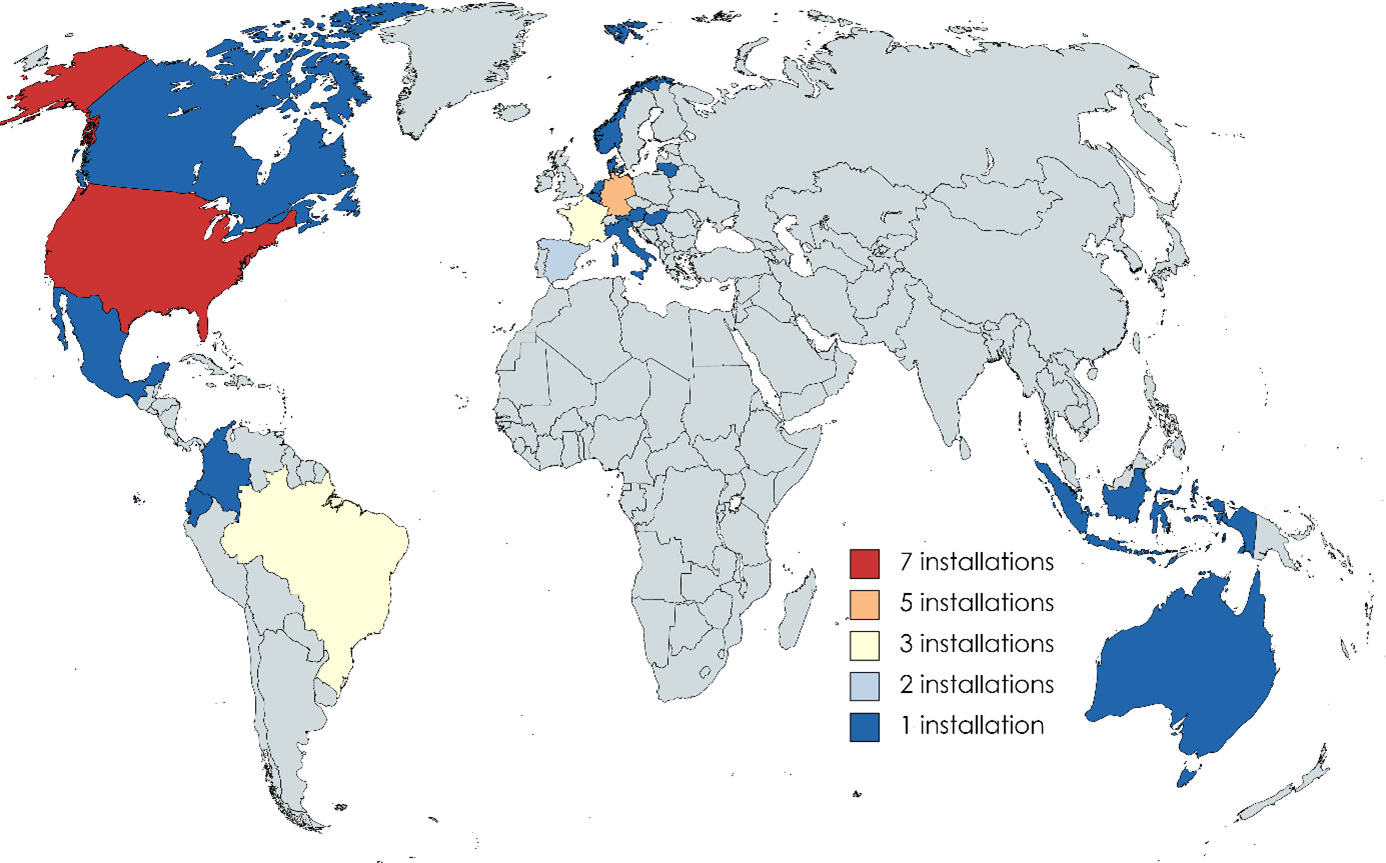Dataverse Community Survey 2022 – Report
DOI:
https://doi.org/10.7557/7.6872Keywords:
Data archive, Data management infrastructure, Data publication, Data repository management, Data sharing, Digital archiving, Digital infrastructure, Digital preservation, Digital research data, Long-term preservation, OAI repository, Repository, Research data, Research data management, Research data management infrastructure, Research data publication workflow, Scientific data infrastructure, Scientific data services, Trusted Digital Repository, open source software, OSS, community-driven, Dataverse, Open ScienceAbstract
This report presents some of the results from the Dataverse Community Survey 2022.
The main goal of the survey was to help the Global Dataverse Community Consortium (GDCC; https://dataversecommunity.global/) and the Dataverse Project (https://dataverse.org/) decide on what actions to take to improve the Dataverse software and the larger ecosystem of integrated tools and services as well as better support community members. The results from the survey may also be of interest to other communities working on software and services for managing research data.
The survey was designed to map out the current status as well as the roadmaps and priorities of Dataverse installations around the world.
The main target group for participating in the survey were the people/teams responsible for operating Dataverse installations around the world. A secondary target group were people/teams at organizations that are planning to deploy or considering deploying a Dataverse installation. There were 34 existing and planned Dataverse installations participating in the survey.
Downloads
Metrics
References
Arp, L. G., & Forbes, M. (2022). It Takes a Village: Open Source Software Sustainability. A Guidebook for Programs Serving Cultural and Scientific Heritage (February 2018; Minor Updates March 2022). LYRASIS. https://www.lyrasis.org/programs/Documents/ITAV_Guidebook_042522FINAL.pdf
Conzett, P. (2020). DataverseNO: A National, Generic Repository and its Contribution to the Increased FAIRness of Data from the Long Tail of Research. Ravnetrykk, 39, Article 39. https://doi.org/10.7557/15.5514
Conzett, P. (2022). Dataverse Community Survey 2022 – Data (Version 1) [Dataset]. DataverseNO. https://doi.org/10.18710/UOC8CP
Conzett, P., Crabtree, J., & Myers, J. (2022). Updates from the Global Dataverse Community Consortium (GDCC). Presentation at the Dataverse Community Meeting 2022. https://hdl.handle.net/10037/26038
Crosas, M. (2020). Fair Principles and Beyond: Implementation in Dataverse. Septentrio Conference Series, 2, Article 2. https://doi.org/10.7557/5.5334
DevOps. (2022). In Wikipedia. https://en.wikipedia.org/w/index.php?title=DevOps&oldid=1124816167
GDCC—The Global Dataverse Community Consortium. (n.d.). Retrieved 11 December 2022, from https://dataversecommunity.global/
IQSS/dataverse/releases. (n.d.). IQSS/Dataverse. Retrieved 8 May 2022, from https://github.com/IQSS/dataverse/releases
King, G. (2007). An Introduction to the Dataverse Network as an Infrastructure for Data Sharing. Sociological Methods & Research, 36(2), 173–199. https://doi.org/10.1177/0049124107306660
Sauro, J. (2018, September 5). 4 Classes of Survey Questions. MeasuringU. https://measuringu.com/survey-question-classes/
Schlatter, T., & Ji, J. (2021). Personas for software? How and why we created archetypes for installation of an open source product [Poster]. The information architecture conference (IAC21), Virtual. https://drive.google.com/file/d/1SA2W7MKMRXTAzFrZmjVYM-E6o9tT1OQm/view?usp=sharing
The Dataverse Project. (n.d.). Retrieved 11 December 2022, from https://dataverse.org/
Working Party of National Experts on Science and Technology Indicators. (2007). Revised Field of Science and Technology (FOS) Classification in the Frascati Manual. Organisation for Economic Co-operation and Development. https://www.oecd.org/science/inno/38235147.pdf

Downloads
Published
How to Cite
Issue
Section
License
Copyright (c) 2022 Philipp Conzett

This work is licensed under a Creative Commons Attribution 4.0 International License.








